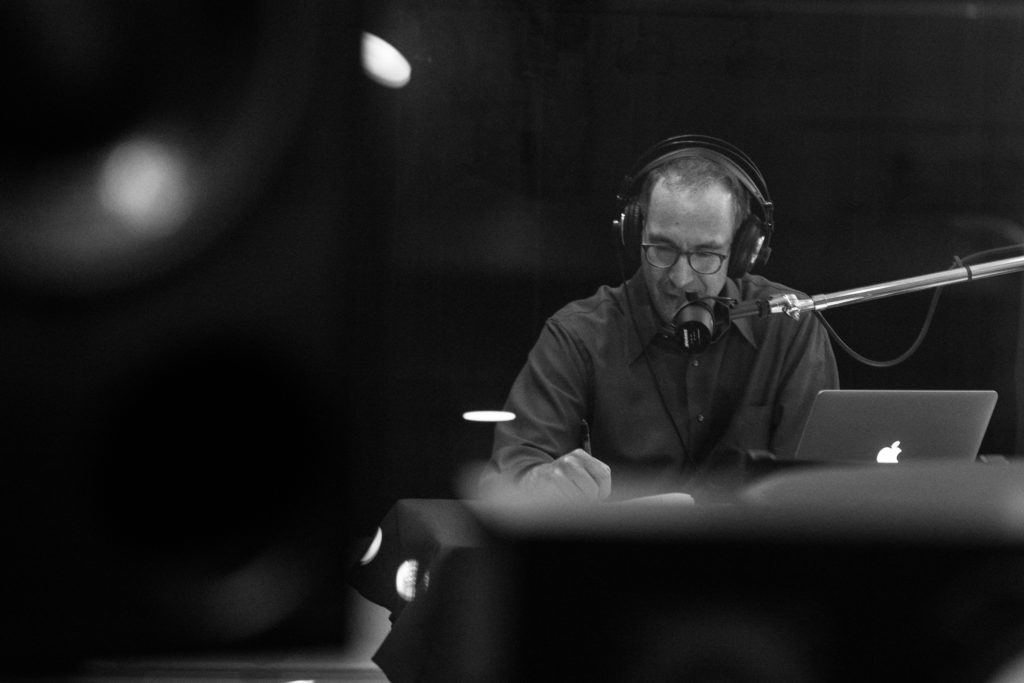Labor & Economy
Why a Pioneering Green Energy Investor is Optimistic About the Future of the Planet
Daniel Weiss, managing partner of Angeleno Group, describes on the latest episode of “The Bottom Line” podcast how clean energy has moved from the realm of politics and policy to that of the markets and economics.

When Daniel Weiss co-founded Angeleno Group in 2001 to fund green energy companies, few would have regarded him as a master of timing.
Oil was trading at a lowly $23 per barrel. The California electricity crisis had recently triggered large-scale blackouts across the state. Enron had just gone belly-up.
“To launch an investment firm and raise capital to invest in this space . . . maybe we ought to have had our heads examined, ” Weiss, one of Angeleno Group’s two managing partners, told me on the latest episode of my podcast, The Bottom Line.
Seventeen years and $2.5 billion worth of investments later, Weiss and his colleagues have proven that they were lot more savvy than silly.
Along the way, they’ve kept their eyes on four fundamental drivers: an urgent need to replace an aging and inadequate power infrastructure in the United States and elsewhere; the steadily increasing demand for fuel and electricity as ever more of the world’s population enters the middle class and becomes urbanized; a push by different nations to secure their own energy independence; and the rise of global warming and other environmental issues as a major social concern.
“You add those four things up,” Weiss notes, “and we thought, ‘These are not 10-, 20-, 30-month trends. These are 20-, 30-, 40-year trends. And they’re going to create massive investment opportunities.’”
Plus, Weiss adds, the field was pretty wide open back then. “Not a lot of folks were focused on the next generation of energy,” he says.
At least not in the private sector. Two decades ago, most of those paying close attention to our biggest energy and environmental problems — and how we might overcome them—were public officials, nonprofit leaders, and scholars.
Not any longer, however. “We really are shifting,” Weiss says, “from a world in which adoption of some of these technologies is driven by politics and policy to a world . . . being driven by markets and economics.”
Actually, among Angeleno Group’s greatest strengths is its ability to draw on the assistance of those who have deep experience in both arenas—corporate and government. The firm’s advisory board includes John Browne, the former chief executive of British oil giant BP; Ernest Moniz, who served as Energy Secretary under President Obama; Bennett Johnson, the long-time senator from Louisiana who chaired the Energy and Natural Resources Committee; and nine others with similarly golden credentials.
Motivating these heavy-hitters — who take a very active role in helping Angeleno Group and its portfolio companies — is the belief “that this $6 trillion vertical of the global economy is an important one,” Weiss says, and that “technology, science, and entrepreneurship in this sector can make a really positive difference.”
Despite the ongoing threat of climate change and a number of backward steps on the environment made by President Trump and his administration, Weiss thinks so too. He points out that the companies Angeleno Group has invested in — a range of enterprises offering products and services in wind and solar, clean transportation, energy efficiency, and more — have had the effect in terms of reduced carbon of taking the equivalent of 50 million cars off the road per year.
But there’s another metric that hits even closer to home. In 1977, when Weiss was growing up in Los Angeles, there were more than 120 Stage 1 smog alerts. “You couldn’t go out and play on the blacktop” because the air was so nasty, he recalls. But now, “in my kids’ experience in elementary school . . . in Los Angeles there were zero Stage 1 smog alerts” — even though there’s far more traffic on the road.
What made things better, says Weiss, was a steady progression in which politics and policy helped to drive the adoption of new technology (in that case, the catalytic converter) until, eventually, market forces took over and spurred truly widespread change.
“I’m optimistic,” he says, “because of that track record and history that we have of innovating our way against some of these challenges.”
You can listen to my entire interview with Weiss here, along with Marty Goldensohn reporting on Coca-Cola’s “World Without Waste” sustainable packaging campaign, and Rachel Schneider pondering whether the United States can ever have lasting full employment.
The Bottom Line is a production of Capital & Main.

-

 Latest NewsFebruary 3, 2026
Latest NewsFebruary 3, 2026Amid the Violent Minnesota Raids, ICE Arrests Over 100 Refugees, Ships Many to Texas
-

 Featured VideoFebruary 4, 2026
Featured VideoFebruary 4, 2026Protesters Turn to Economic Disruption to Fight ICE
-

 The SlickFebruary 2, 2026
The SlickFebruary 2, 2026Colorado May Ask Big Oil to Leave Millions of Dollars in the Ground
-

 Column - State of InequalityFebruary 5, 2026
Column - State of InequalityFebruary 5, 2026Lawsuits Push Back on Trump’s Attack on Child Care
-

 Column - California UncoveredFebruary 6, 2026
Column - California UncoveredFebruary 6, 2026What It’s Like On the Front Line as Health Care Cuts Start to Hit
-

 The SlickFebruary 10, 2026
The SlickFebruary 10, 2026New Mexico Again Debates Greenhouse Gas Reductions as Snow Melts
-

 Latest NewsFebruary 12, 2026
Latest NewsFebruary 12, 2026Trump Administration ‘Wanted to Use Us as a Trophy,’ Says School Board Member Arrested Over Church Protest
-

 Latest NewsFebruary 10, 2026
Latest NewsFebruary 10, 2026Louisiana Bets Big on ‘Blue Ammonia.’ Communities Along Cancer Alley Brace for the Cost.

